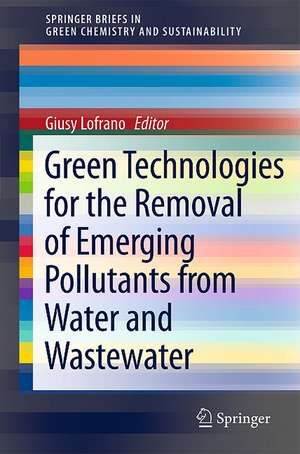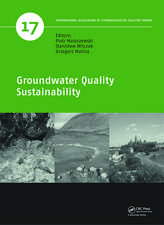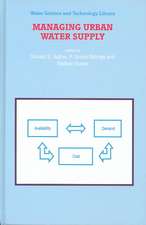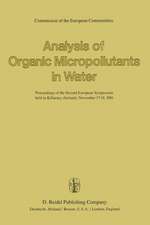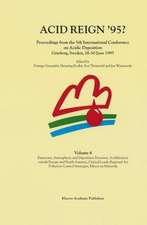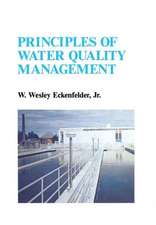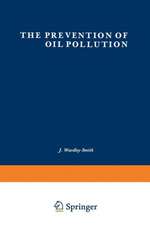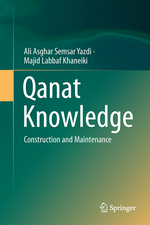Green Technologies for Wastewater Treatment: Energy Recovery and Emerging Compounds Removal: SpringerBriefs in Molecular Science
Editat de Giusy Lofranoen Limba Engleză Paperback – 5 apr 2012
More specifically, this volume focuses on:
- Presenting the advantages linked to the application of chemically assisted primary sedimentation (CAPS) that enables energy optimization of wastewater treatment plants and points to the possibility of wastewater as a possible resource;
- Discussing the analytical problems related to the analytical detection of emerging pollutants and of their transformation products;
- Comparing the efficiency of MBR plants for removing trace pollutants with conventional systems;
- Evaluating the application of Wet Oxidation (WO) for the treatment of aqueous effluents to remove trace pollutants;
- Reviewing the application of Photo-Fenton process and complementary treatment systems (H2O2/UV-C and Fenton’s reagent) for the degradation of two industrial pollutant categories with significant endocrine disrupting properties: alkyl phenols (nonyl and octyl phenols) and bisphenol A.
Green Technologies for Wastewater treatment: Energy Recovery and Emerging Compounds Removal will be of great interest to students, technicians, and academics alike who are interested in evaluating and selecting the technologies that lead to better and more sustainable treatment of these huge classes of pollutants.
Din seria SpringerBriefs in Molecular Science
-
 Preț: 411.46 lei
Preț: 411.46 lei -
 Preț: 379.09 lei
Preț: 379.09 lei -
 Preț: 356.49 lei
Preț: 356.49 lei -
 Preț: 441.25 lei
Preț: 441.25 lei -
 Preț: 389.70 lei
Preț: 389.70 lei -
 Preț: 376.22 lei
Preț: 376.22 lei -
 Preț: 348.77 lei
Preț: 348.77 lei -
 Preț: 345.14 lei
Preț: 345.14 lei -
 Preț: 347.68 lei
Preț: 347.68 lei -
 Preț: 346.70 lei
Preț: 346.70 lei -
 Preț: 376.43 lei
Preț: 376.43 lei -
 Preț: 342.14 lei
Preț: 342.14 lei -
 Preț: 375.23 lei
Preț: 375.23 lei -
 Preț: 375.23 lei
Preț: 375.23 lei -
 Preț: 379.09 lei
Preț: 379.09 lei -
 Preț: 376.59 lei
Preț: 376.59 lei -
 Preț: 476.79 lei
Preț: 476.79 lei -
 Preț: 378.12 lei
Preț: 378.12 lei -
 Preț: 376.59 lei
Preț: 376.59 lei -
 Preț: 376.59 lei
Preț: 376.59 lei -
 Preț: 375.23 lei
Preț: 375.23 lei -
 Preț: 351.18 lei
Preț: 351.18 lei -
 Preț: 372.73 lei
Preț: 372.73 lei -
 Preț: 378.54 lei
Preț: 378.54 lei -
 Preț: 376.96 lei
Preț: 376.96 lei -
 Preț: 377.35 lei
Preț: 377.35 lei -
 Preț: 378.12 lei
Preț: 378.12 lei -
 Preț: 376.04 lei
Preț: 376.04 lei -
 Preț: 346.59 lei
Preț: 346.59 lei -
 Preț: 375.45 lei
Preț: 375.45 lei -
 Preț: 377.73 lei
Preț: 377.73 lei -
 Preț: 381.00 lei
Preț: 381.00 lei -
 Preț: 377.18 lei
Preț: 377.18 lei -
 Preț: 376.96 lei
Preț: 376.96 lei -
 Preț: 380.07 lei
Preț: 380.07 lei -
 Preț: 376.22 lei
Preț: 376.22 lei -
 Preț: 343.72 lei
Preț: 343.72 lei -
 Preț: 376.22 lei
Preț: 376.22 lei -
 Preț: 377.35 lei
Preț: 377.35 lei -
 Preț: 343.72 lei
Preț: 343.72 lei -
 Preț: 376.22 lei
Preț: 376.22 lei -
 Preț: 375.07 lei
Preț: 375.07 lei -
 Preț: 374.85 lei
Preț: 374.85 lei - 15%
 Preț: 464.97 lei
Preț: 464.97 lei -
 Preț: 376.43 lei
Preț: 376.43 lei -
 Preț: 341.75 lei
Preț: 341.75 lei -
 Preț: 374.30 lei
Preț: 374.30 lei -
 Preț: 375.23 lei
Preț: 375.23 lei -
 Preț: 377.57 lei
Preț: 377.57 lei
Preț: 377.73 lei
Nou
Puncte Express: 567
Preț estimativ în valută:
72.29€ • 75.01$ • 60.42£
72.29€ • 75.01$ • 60.42£
Carte tipărită la comandă
Livrare economică 15-29 martie
Preluare comenzi: 021 569.72.76
Specificații
ISBN-13: 9789400714298
ISBN-10: 9400714297
Pagini: 114
Ilustrații: XX, 92 p. 24 illus.
Dimensiuni: 155 x 235 x 6 mm
Greutate: 0.17 kg
Ediția:2012
Editura: SPRINGER NETHERLANDS
Colecția Springer
Seriile SpringerBriefs in Molecular Science, SpringerBriefs in Green Chemistry for Sustainability
Locul publicării:Dordrecht, Netherlands
ISBN-10: 9400714297
Pagini: 114
Ilustrații: XX, 92 p. 24 illus.
Dimensiuni: 155 x 235 x 6 mm
Greutate: 0.17 kg
Ediția:2012
Editura: SPRINGER NETHERLANDS
Colecția Springer
Seriile SpringerBriefs in Molecular Science, SpringerBriefs in Green Chemistry for Sustainability
Locul publicării:Dordrecht, Netherlands
Public țintă
ResearchCuprins
Green Chemistry for Green Treatment Technologies.- Removal of emerging contaminants from water and wastewater by adsorption process.- Removal of trace pollutants by application of MBR technology for wastewater treatment.- Removal of pesticides from water and wastewater by solar driven photocatalysis.- Application of wet oxidation to remove trace pollutants for wastewater.- Removal of trace pollutants from wastewater in constructed wetlands.- Removal of pharmaceutics by solar-driven processes.- Advanced Oxidation of Endocrine Disrupting Compounds: Review on Photo-Fenton Treatment of Alkylphenols and Bisphenol A.- Detection of transformation products of emerging contaminants.- Chemically assisted primary sedimentation: a green chemistry option.- Outlook.
Notă biografică
Giusy Lofrano, Sanitary Environmental Engineering Division Department of Civil Engineering University of Salerno via ponte don Melillo, 1-84084 Fisciano (Salerno)-Italy
Textul de pe ultima copertă
In order to analyse the challenges posed by the quest for sustainability, Green Technologies for Wastewater treatment: Energy Recovery and Emerging Compounds Removal evaluates water management together with energy use. The strong effects that the release of emerging pollutants such as endocrine disruptors (EDCs), pharmaceuticals and personal care products (PPCPs) have in wastewater reuse applications are examined, as well as the need to optimize the energy consumption in wastewater treatment.
More specifically, this volume focuses on:
· Presenting the advantages linked to the application of chemically assisted primary sedimentation (CAPS) that enables energy optimization of wastewater treatment plants and points to the possibility of wastewater as a possible resource.
· Discussing the analytical problems related to the analytical detection of emerging pollutants and of their transformation products.
· Comparing the efficiency of MBR plants for removing trace pollutants with conventional systems.
· Evaluating the application of Wet Oxidation (WO) for the treatment of aqueous effluents to remove trace pollutants
· Reviewing the application of Photo-Fenton process and complementary treatment systems (H2O2/UV-C and Fenton’s reagent) for the degradation of two industrial pollutant categories with significant endocrine disrupting properties: alkyl phenols (nonyl and octyl phenols) and bisphenol A.
Green Technologies for Wastewater treatment: Energy Recovery and Emerging Compounds Removal will be of great interest to students, technicians, and academics alike who are interested in evaluating and selecting the technologies that lead to better and more sustainable treatment of these huge classes of pollutants.
More specifically, this volume focuses on:
· Presenting the advantages linked to the application of chemically assisted primary sedimentation (CAPS) that enables energy optimization of wastewater treatment plants and points to the possibility of wastewater as a possible resource.
· Discussing the analytical problems related to the analytical detection of emerging pollutants and of their transformation products.
· Comparing the efficiency of MBR plants for removing trace pollutants with conventional systems.
· Evaluating the application of Wet Oxidation (WO) for the treatment of aqueous effluents to remove trace pollutants
· Reviewing the application of Photo-Fenton process and complementary treatment systems (H2O2/UV-C and Fenton’s reagent) for the degradation of two industrial pollutant categories with significant endocrine disrupting properties: alkyl phenols (nonyl and octyl phenols) and bisphenol A.
Green Technologies for Wastewater treatment: Energy Recovery and Emerging Compounds Removal will be of great interest to students, technicians, and academics alike who are interested in evaluating and selecting the technologies that lead to better and more sustainable treatment of these huge classes of pollutants.
Caracteristici
Presents a synthesis of knowledge regarding the use of Natural Adsorbents in water and wastewater treatment Introduces sustainable development through the principles of green engineering Includes supplementary material: sn.pub/extras
